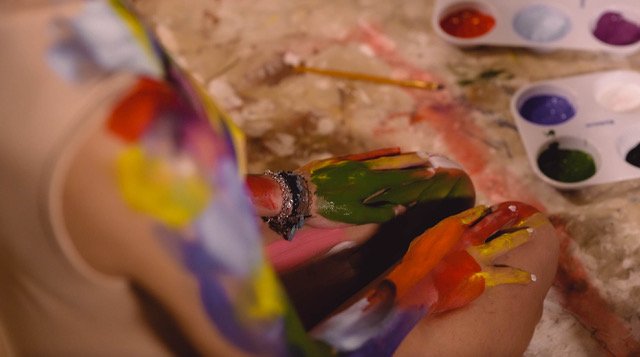"Enduring love and surviving love", an open letter by Marta Palombo
In an interview I did recently, my friend and fellow creative Anna said, “it seems like your work often features strong female characters.”
I paused for a moment, and then realized that even though I never set out with that express goal, it does usually end up that way. I think a woman’s ability to love is one of the things that makes us strongest — Jane Austen once said, “we women love longest even when all hope is gone.” That’s a quote that has stuck with me, and it’s a recurring theme that I constantly come back to in my songs: the ability to love, to endure love, to create love, to nurture love; the ability to love quietly, love boldly, love comfortably, and love passionately. Our love for men, women, partners, children, animals, ideas, places, things — it will push us forward until the ends of the earth if we let it.
Enduring love and surviving love are the main themes in Marie-Therese’s Song and Olga’s Song. This project was a way for me to give women a voice, and to dive into their experience of being loved and wronged by the same man.
I was inspired by an art exhibit I went to in May of 2021. It featured works from an artist spanning his whole life, and many of the subjects were his female muses. I looked at works of art that were the definition of love and passion, with a woman’s name attached as the subject... only to turn around and see that same woman, depicted years later as an unrecognizable, spent, grotesque husk of herself.
It made me wonder how the subjects of these paintings (the women, the muses) must have felt. To be loved by someone, to be put on a pedestal and told you inspire the greatest artistic expression in someone. And then to watch, powerless, as that someone starts to pull away, fall out of love, and even worse: watch as that someone stops being inspired by you. People fall out of love all the time, but to cease being a source of inspiration seems to me like the cruelest layer of heartbreak.
I am an artist; I know firsthand how volatile, unpredictable, and wonderful inspiration can be. I know what it is to be inspired by someone, by something, and to take what I need from it to create something beautiful before moving on to the next idea. But I am also a woman, and I know what it is to be heartbroken, to long for someone, to love someone, and to fight tooth and nail as love slips away. This exhibit was, weirdly enough, the first time I was confronted with the idea of what it must be like to be someone’s muse. I’m so used to being the artist that I never once stopped to think: what is it like to inspire someone, instead of being inspired?
And with that thought, I started to see the exhibit in a whole new light. I started to see the stories behind the art, the painful crumbling of love, and as one muse’s name disappeared and a new one took its place, I started to imagine the devastation of being left behind.
By the time I walked out of the exhibit, I was angry: how awful is it that the muse’s lives, personalities, and emotions were lost to history, while a man’s depiction of them remains? How maddening is it that these women were real, multifaceted people, but what we mainly know of them now is through the eyes of a man that loved and lost them? If it were me, I’d be furious that I didn’t get to write my own story and say my piece.
So I went home, and I did my best to write what I thought these women would have said, if they could have. Olga as a wife who faced the decision of leaving after a betrayal, and Marie- Therese as the young, hopeful lover who just wanted someone wholly hers and was never able to have them. Both women were tied together by the same man, and both had love as their greatest strength: the strength to leave someone you love, and the strength to endure in love no matter how complicated.
Who knows how they would have chosen to tell their story if they could have. Maybe they would have been honored to be remembered through the eyes of a lover, or maybe they would have wanted to express just how much strength it took to survive a love that all-consuming. I did my best to give them the words to express their love, pain, and heartbreak. It’s a different side of the story; it’s the ugly side of what it means to be a muse. And I hope I made them breathe a little easier, wherever they are now.
Marie-Therese’s Song and Olga’s Song, along with the accompanying music videos, are now available everywhere for anyone to listen to. I hope they’ll transport you, and make you feel just how strong love can be.
All my love, always, to anyone that listens,
-Marta Palombo

